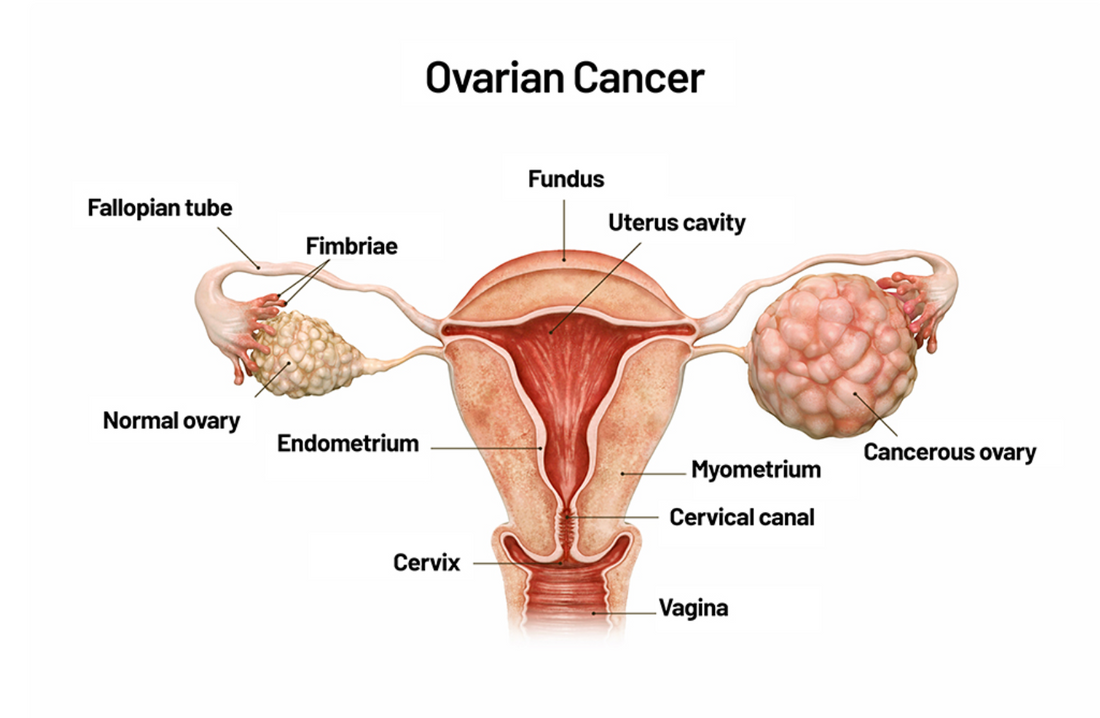
World's first Ovarian cancer vaccine could eliminate the deadly disease
Researchers in the UK are developing the world's first vaccine aimed at eliminating ovarian cancer, potentially revolutionising the fight against this deadly disease.
Scientists from the University of Oxford are working on a vaccine called OvarianVax, which is designed to train the immune system to identify and attack ovarian cancer cells in their earliest stages.
Ovarian cancer is a significant health concern, affecting thousands of women and leading to a high number of annual fatalities. Symptoms can be subtle and often include persistent bloating, abdominal discomfort, and increased frequency of urination, making early detection challenging.
The goal is for the vaccine to be used preventatively, similar to the human papillomavirus (HPV) vaccine, which has been instrumental in reducing rates of cervical cancer. The HPV vaccine is widely administered to school-aged children and individuals at higher risk, significantly lowering the incidence of HPV-related conditions, such as cervical cancer and genital warts.

Professor Ahmed Ahmed, head of the ovarian cancer research team at the MRC Weatherall Institute of Molecular Medicine at Oxford, and his colleagues are working to identify the most recognizable proteins on the surface of early-stage ovarian cancer cells. They aim to assess how well the vaccine targets these proteins and its efficacy against miniature models of ovarian cancer in laboratory settings.
The next phase will involve human clinical trials, starting with individuals who have BRCA gene mutations—which are known to significantly increase ovarian cancer risk—followed by testing in the general population to determine its potential in preventing the disease.
This groundbreaking study is being supported by Cancer Research UK, with funding of up to £600,000 over the next three years. If successful, Professor Ahmed predicts that the vaccine could begin making a tangible impact within the next five years.
Currently, around 4,100 women in the UK lose their lives to ovarian cancer annually, underscoring the urgent need for new preventative strategies.
Asked if ovarian cancer could be wiped out with the new vaccine, he said: "Absolutely - that would be the aim.
"We still have a long way to go but it is a really exciting time. I'm very optimistic myself."
Scientists will create the vaccine in the lab, with the aim of training the immune system to recognise more than 100 proteins on the surface of ovarian cancer, known as tumour-associated antigens.
They will then move to testing the vaccine in patients with the disease.
Prof Ahmed said: "The idea is, if you give the vaccine, these tiny tumours will hopefully either reduce, shrink really significantly, or disappear.
"That would give us the sign that the vaccine is working."
The next stage would then be to include women with BRCA mutations and a wider general population of women without known disease to see whether "the vaccine would be suitable for all" in preventing ovarian cancer.
Prof Ahmed said: "Let's imagine that it all goes well, and the vaccine really works well.
"Now, the obvious population who would benefit from this are the BRCA1 and BRCA2 mutation carriers, because they have a very high chance of getting ovarian cancer.
"If you give it to those patients and it's effective, then you get the best health economics and the best cost-effectiveness.
What are the signs of ovarian cancer?
Ovarian cancers affects the ovaries - the organs that store the eggs needed to make babies.
It mostly affects women over the age of 50 and can sometimes run in families, according to the NHS.
Symptoms of the cancer can be vague, particularly in its early stages, Cancer Research UK SAYS.
The charity advises you speak to a GP if you have the following symptoms:
- Feeling full quickly
- Loss of appetite
- Pain in your abdomen or lower part of your abdomen that doesn't go away
- Bloating or an increase in the size of your abdomen
- Needing to wee more often
- Tiredness that is unexplained
- Weight loss that is unexplained
- Changes in your bowel habit or symptoms of irritable bowel syndrome, especially if this starts after the age of 50
The NHS added that bleeding from the vagina after the menopause could be another possible symptom of ovarian cancer.
"The question then becomes - would it really benefit the general population? Could you offer it to everyone?"
At the moment, there is no screening test for ovarian cancer, which is often diagnosed in late stages because the symptoms - such as bloating and no appetite - can be vague.
Women with BRCA mutations are at high risk.
Almost 45 per cent of people with an altered BRCA1 gene and almost 20 per cent with an altered BRCA2 gene will develop ovarian cancer by the age of 80, compared with just 2 per cent in the general population.
Currently, women with BRCA1/2 alterations are recommended to have their ovaries removed by the age of 35, which means they go through early menopause and cannot have children afterwards.
Prof Ahmed said BRCA mutation carriers could benefit greatly from the new vaccine because "they wouldn't then have to have their ovaries removed".
However, he said his team will be trying to get the best components included in the vaccine so it "would be effective for as many people as possible", including the wider population.
He added: "I am optimistic because we are talking about preventing the very first few cancer cells that develop - and not trying to cure or treat or prevent the tumour coming back.
"I'm hoping that, because the number of cells that we will be targeting is quite small, we will have success.
"We've seen success with the HPV vaccine - it's really, really incredibly effective."

